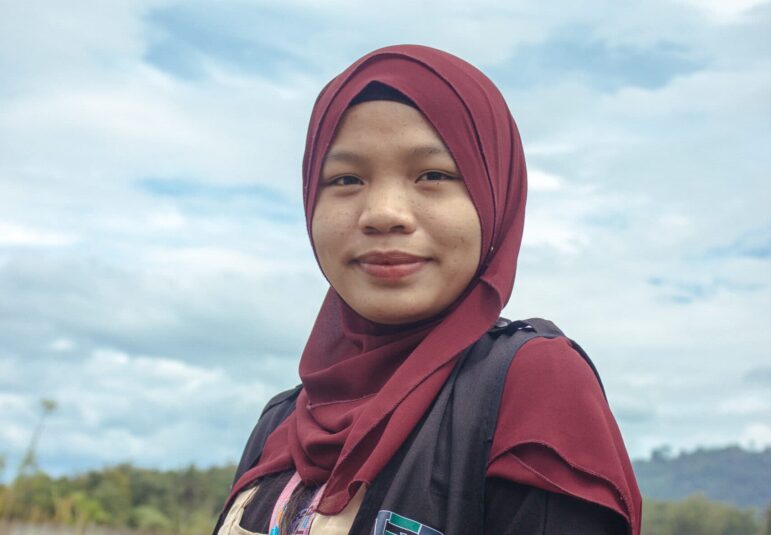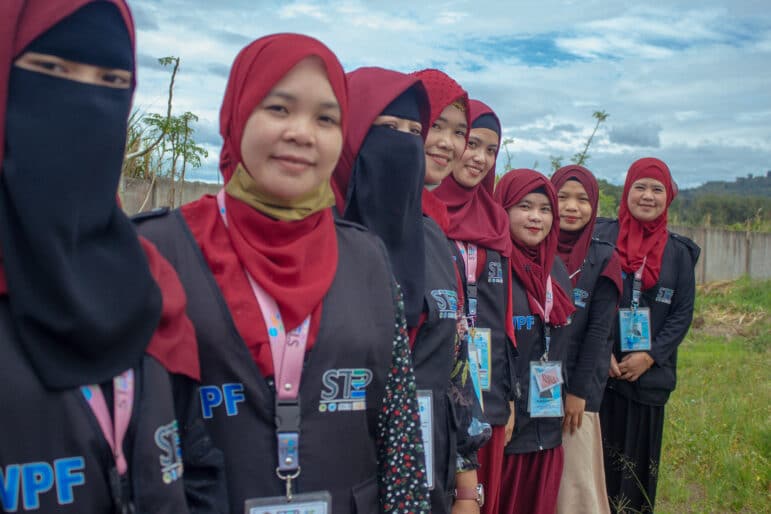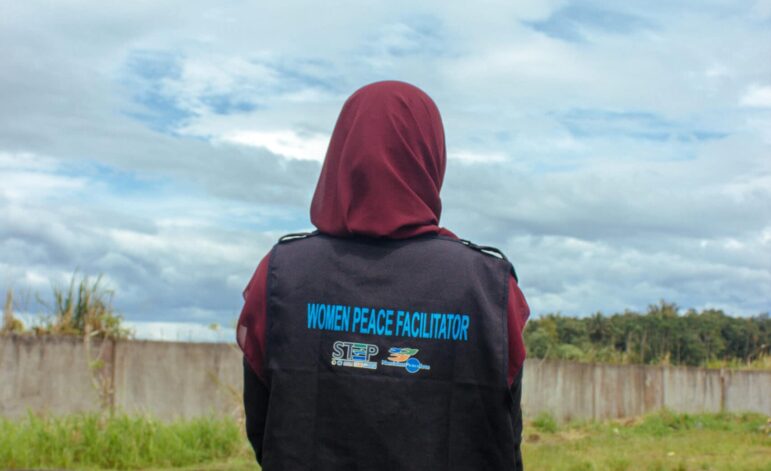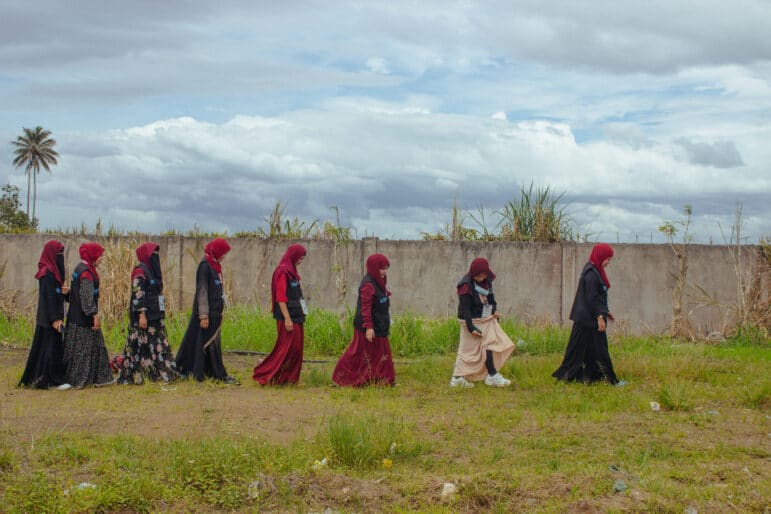Step by Step: Former Women Combatants Moving Towards Peace in the Philippines
by Denise Rafaeli Cadorniga
With support and training from Nonviolent Peaceforce (NP), a group of former women combatants in Lanao Del Sur, Philippines are slowly transitioning and changing their role and reputation as an armed group to becoming Women Peace Facilitators for their community.
Transitioning to Peace
For years, these women had been fighting for autonomy from the government as members of the Bangsamoro Islamic Women Auxiliary Brigade (BIWAB). The Brigade is a part of the largest militant group that sought independence for Filipino Muslims, the Moro Islamic Liberation Front.
But in 2019—after years of peace talks—the government and separatist groups reached an important agreement that recognized the autonomy of their region. Although the agreement brought autonomy, it also left the women to re-examine their roles in their community.

From Combatants to Trusted Community Leaders
NP could see that the former women combatants would be able to reintegrate into their communities, and not just as members, but as leaders. By working with NP, the women have strengthened their skills in everything from advocacy and peacebuilding to psychosocial skills to support with reconciliation and listening.
Since their involvement with NP, the women have been spotted more in communities than in armed training camps. These women have chosen to equip themselves with nonviolent skills instead of arms.
This nonviolent approach paired with their trust and respect in the region has positioned the brigade as highly effective advocates for the government’s social services. Community members now seek the former combatants' involvement in community development projects and advice when facing challenges.
"Every time the municipal government launches a program, BIWAB has consistently been asked to help lead initiatives. We are more recognized now than before. Previously, BIWAB was limited to training camp. Now, even when not in camps, people recognize us as BIWAB."
“Every program ng munisipyo, laging natatawag ang BIWAB. Mas kilalala na kami ngayon kumpara dati. Dati kasi, masasabi lang BIWAB pag pumunta ng kampo, ngayon every lakad namin, ‘Nandyan na naman ang mga BIWAB.’"
Faidah S. Tamano, 26, shares how BIWAB perception has evolved.
Women Peace Facilitators
Today, their duties have grown to include travel across barangays where they use educational activities to bring awareness to discuss Gender-based Violence, peacebuilding, and women's rights. The community members and their public officials not only view the group as frontline combatants, but also as Women Peace Facilitators. Comparable to professional social workers, their services are frequently requested. The group is often included in barangay discussions, contributing to their community’s future plans together with NP.
And, there have been instances in which the women act as listeners to grievances voiced from some of the many civilians that have been displaced by conflict. The women’s support for and involvement in smooth governmental transactions and reconciliation processes has reduced apprehension of their work—their services and offerings have gained the community’s solid trust and confidence.
Looking to the Future
While they are still combatants, they are increasingly viewed as peacemakers. This positive change in reputation is slowly breaking the cycle of violence that has been going on for generations as the Bangsamoro region fights for their right to self-determination.
The group has been documenting and collecting participatory action research to present to the Bangsamoro Transition Authority Parliament. Their findings reflect the needs of certain communities and recommended services for the government to introduce within barangays.
What was once a group avoided by most people has transformed into a group of peace facilitators, whose services are widely sought after. The norm of armed conflict is beginning to fade as communities see steady improvements in social services and less armed marching troops. As children see fewer adults bearing arms, a generational shift is occurring. Bangsamoro children will slowly equate their expectations for community with peace and mutual respect.
* * *
These women are among those who received trainings of the STEP Project funded by the United Nations Population Fund (UNFPA) Peacebuilding fund. STEP, or "Supporting Conflict Transformation Towards Effective Peacebuilding," in the Bangsamoro Region is being implemented in North Cotabato, Maguindanao, and Lanao Del Sur to fortify reintegration efforts for former women combatants by encouraging them to engage and support peacebuilding, promoting gender-responsive, inclusive, and culturally-sensitive legislation, policies and programmes, and building the resilience of communities in conflict hotspots through collaborative socio-economic activities and inclusive community-based reconciliation mechanisms.



